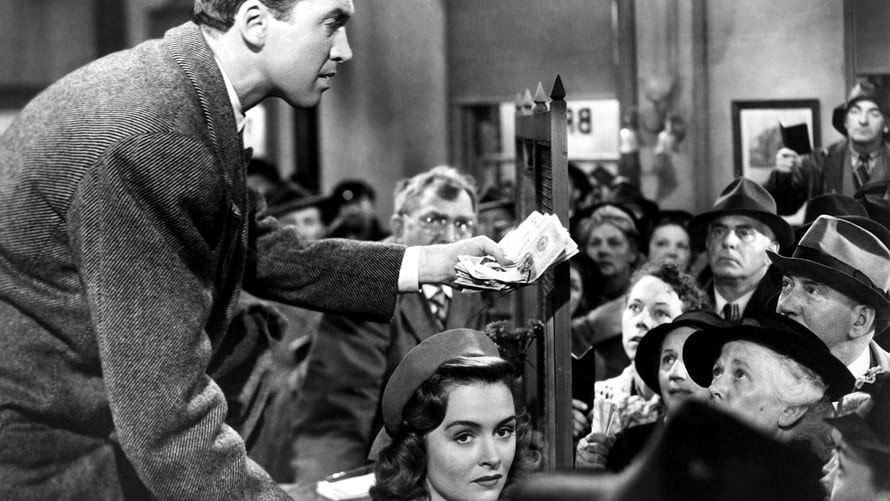
Using a credit card responsibly is an effective way to build credit. But it’s not the only way.
If you’ve decided that credit cards aren’t for you, you’ll be happy to know that there are many ways to build credit without a credit card. And not only can you build a solid credit history, but you can also achieve a good credit score.
How to Build Credit Without a Credit Card
The keys to building credit without a credit card: Develop excellent credit habits and use other credit-building strategies.
Before we jump into strategies, let’s briefly look at the three different types of credit and how you can use them to your benefit.
- Revolving credit: A credit card is an example of revolving credit. You have a credit limit, and you’re free to use as much of your credit limit as you like. But if you carry a balance, you pay interest on the amount.
- Installment loans: An auto loan or a mortgage is an example of an installment loan. You pay a monthly amount based on the terms you agreed to, such as the duration of the loan and the interest rate.
- Open credit: Your cellphone or utility bill is considered open credit. The accounts have a balance that you’re required to pay each month, and interest isn’t charged. Open credit accounts aren’t usually reported to the credit bureaus, but if you don’t pay the bill for an extended period of time, it could be reported to the credit bureaus.
As you can see, even if you don’t have a revolving account, like a credit card, there are other types of credit that can help you build a credit score.
7 Ways to Build Credit Without a Credit Card
Take a look at the seven strategies for building credit without credit cards. All it takes is persistence, a little creativity and time.
Pay Your Bills on Time
Payment history is a whopping 35% of your FICO score. So, if you make a choice to pay all of your bills on time, you’re creating a solid foundation for a good credit score.
One late payment can wreak havoc on your score. Do whatever it takes to pay bills on time. Put due dates on your calendar and set up email reminders and text alerts. If you’re confident that you’ll always have enough money in an account to pay the bills, you should consider setting up automatic payments.
Repay Student Loans
I know it’s a burden to carry student debt, but there’s a silver lining here, too. Paying back your student loans can help you build credit.
Student loans are installment loans. You pay a certain amount each month, and if you pay on time, you also boost the payment history factor in your credit score. It’s extremely important that you stay on top of the news about student loans.
The current deferment period was just extended, but consider continuing to pay down your debt before payments resume.
Get a Car Loan
I’m not suggesting you do this if you have a good car right now. But when the time comes, unless you can pay for a car in cash, use an auto loan as an opportunity to improve your score. Be sure you shop around and get the lowest interest rate you can qualify for.
An auto loan is another example of an installment loan. You make a fixed monthly payment that includes principal and interest. Installment loans do show up on your credit report and impact your score. As long as you make the payments on time, you’re developing a good credit history.
An auto loan, like a mortgage, is a secured loan. This means the loan is tied to an asset, such as your home or a car. Before you apply for a mortgage, though, work on getting your score as high as possible. A higher score will save you thousands over the life of the loan.
Apply for a Personal Loan
Do you need to make some home improvements or perhaps pay for braces for your kid? Getting a personal loan can help improve your credit score. Again, this is an installment loan.
But unlike car loans and mortgages, a personal loan is an unsecured loan. This means it isn’t tied to an asset. The creditor can’t seize property for lack of payment, and that increases the lender’s risk. As a result, these loans can be more difficult to qualify for at a low rate.
Get a Credit-Builder Loan
If you have a low credit score or even zero credit, this type of loan can really jump-start your credit history. You don’t need a good score to qualify, but you do need to have an income.
While traditional loans lend you cash upfront and trust you to make monthly payments, credit-builder loans actually work in reverse. In general, you make a deposit in a bank account for the amount of the credit-builder loan. You make monthly payments on the loan, and after you pay it off, you get your money back plus any interest that was earned.
The lender reports your payment history to each of the three credit bureaus: Equifax, Experian and TransUnion. That way, your payment history is in your credit reports and can have a positive impact on your score.
Look for these loans at credit unions and community banks. And do read the terms carefully because these loans can differ by institution.
Get Credit for Rent Payments
Traditional credit score models don’t include payments for rent. But it’s possible to get your rent payment history included in your credit reports.
There are third-party services, such as Rental Kharma, that will report your rent payments to the credit bureaus. However, being reported to the bureaus doesn’t guarantee that it will be considered by the credit score algorithm. Whether it helps your score depends on the version of the score that the bureau uses.
But it’s worth a try. Start by asking your landlord if it uses or would be willing to use one of the services to report your rent. Note: These services are not free. Read the terms so you know how much you’ll have to pay every month.
Use a Tool to Improve Your Credit Score
There are two tools that can give your score a quick jump-start: Experian Boost and UltraFICO. You have to sign up to use the tools, but they’re both free.
Experian Boost, created by Experian, is a product that includes monthly bills, such as phone, utilities and streaming services, in your credit score. After you sign up for the feature, your chosen bills will show up on your Experian credit report. The goal is to let you get credit for on-time payments that you make every month. If you apply for a loan and the lender uses Experian, then this feature will include positive payment history in the score calculation.
But keep in mind that this only applies to your Experian credit report. If your lender requests a report and a credit score from one of the other two bureaus, the score increase you’d get from Experian Boost will not apply.
Similarly, UltraFICO includes your banking activity, such as your checking and savings accounts. When you apply for credit, ask the lender if it uses UltraFICO.
There are only certain situations where these tools can be applied. But when you’re trying to improve your score, it makes sense to look at all of your options.
























